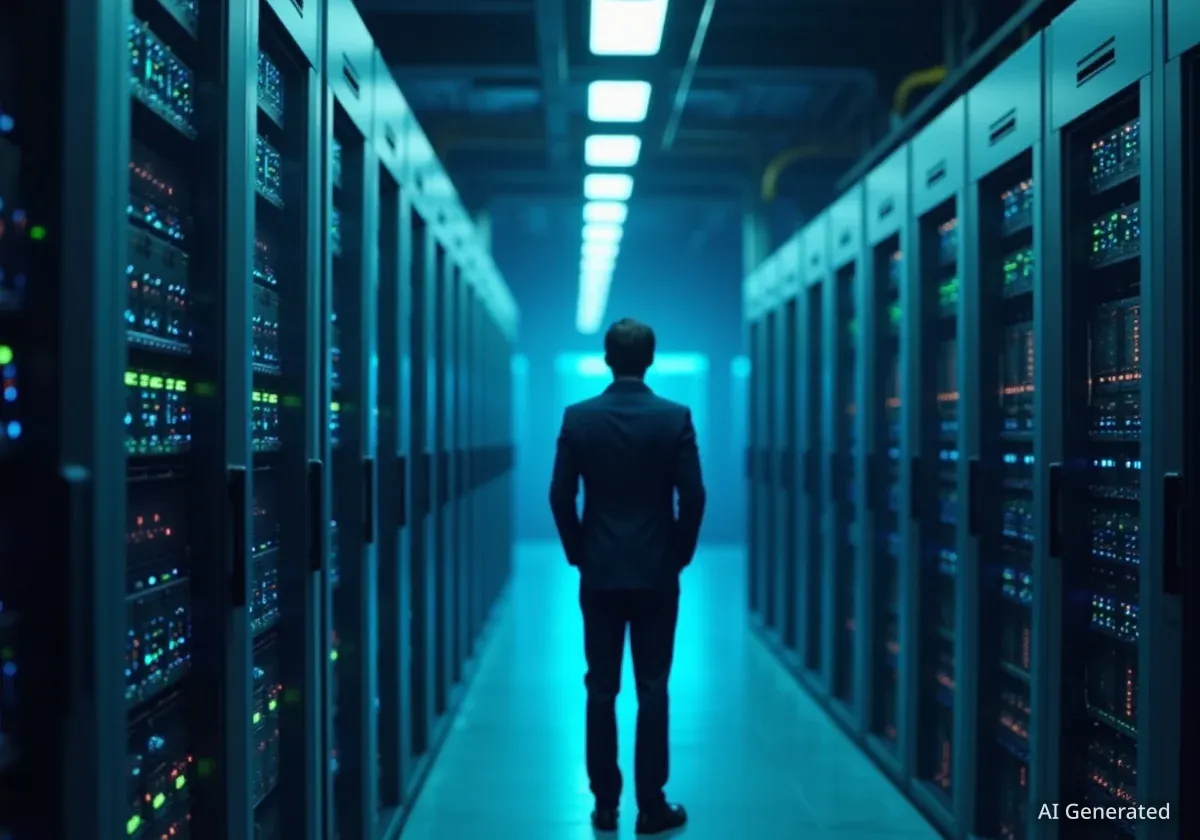Sebastian Siemiatkowski, CEO of the Swedish fintech company Klarna, has issued a stark warning regarding the future impact of artificial intelligence (AI) on the global workforce. He believes many technology leaders are understating the significant disruption AI will bring to knowledge-based jobs. Siemiatkowski's comments highlight a growing debate among industry executives about AI's role in the labor market.
Key Takeaways
- Klarna CEO Sebastian Siemiatkowski states AI will cause a "massive shift" in knowledge work.
- He believes other tech CEOs are downplaying AI's job displacement potential.
- Klarna itself has reduced its workforce from 7,400 to 3,000 employees due to AI adoption.
- The company's AI-powered chatbot handles tasks equivalent to 800 full-time agents.
- Siemiatkowski emphasizes the need for society to address short-term job losses.
AI's Disruptive Potential in Knowledge Work
Siemiatkowski spoke to Bloomberg on Thursday, October 10, 2025, stating, "I feel a lot of my tech bros are being slightly not to the point on this topic." He clarified his view that a profound change is coming for jobs requiring intellectual skills. This shift, he noted, will not be limited to the banking sector but will affect society broadly.
While some executives promote the idea that AI will create new jobs, Siemiatkowski, 44, argues this optimistic outlook can be misleading. He suggests this is especially true in the short term. He pointed to the example of translators in Brussels, where thousands still work in roles that AI can now largely perform.
"Society will have to figure out what are we going to do because yes, new jobs will be created, but in the shorter term, that doesn’t help the Brussels translator. He’s not going to become a YouTube influencer tomorrow," Siemiatkowski explained.
Fact: Klarna's Workforce Reduction
Klarna reduced its employee count from 7,400 to 3,000. This significant decrease coincided with the company's aggressive adoption of AI technologies, demonstrating a direct link between AI integration and workforce changes.
Klarna's Aggressive AI Adoption Strategy
Klarna has been a leading adopter of AI technology. In 2023, Siemiatkowski told OpenAI CEO Sam Altman that he wanted Klarna to be ChatGPT’s "favorite guinea pig." By early 2024, Klarna had launched a customer service chatbot powered by OpenAI.
The company reported that this chatbot could perform tasks equivalent to 800 full-time customer service agents. This demonstrates AI's capacity to automate large-scale operational roles within a short period.
Challenges and Adjustments in AI Implementation
Not all of Klarna's AI initiatives have been without issues. Some customers expressed dissatisfaction with the reduced human interaction. This feedback prompted Klarna to adjust its initial AI-first hiring strategy. The company recognized the importance of human support in certain areas.
In May, Siemiatkowski acknowledged these challenges to Bloomberg. "As cost unfortunately seems to have been a too predominant evaluation factor when organizing this, what you end up having is lower quality," he said. He added, "Really investing in the quality of the human support is the way of the future for us." This indicates a move towards a hybrid approach where AI enhances human roles rather than fully replacing them in all instances.
Context: The Buy Now, Pay Later Market
Klarna operates in the rapidly growing "buy now, pay later" (BNPL) financial technology sector. This industry allows consumers to make purchases and pay for them in installments, often interest-free. The competitive landscape pushes companies like Klarna to innovate and optimize operations through technologies like AI to maintain profitability and market share.
Financial Benefits and Market Performance
Despite the workforce adjustments, Klarna's investment in AI and cost-cutting measures have shown positive financial results. In its most recent earnings report, the fintech firm announced a 38% year-over-year revenue growth in the U.S. The company also reported rising profits, which supported its market position.
This financial momentum played a role in Klarna going public in September. Currently, the company's market capitalization stands at just over $15 billion. These figures suggest that while AI adoption can disrupt employment, it can also drive significant corporate growth and profitability.
Siemiatkowski's Personal Embrace of AI
Siemiatkowski's commitment to AI extends beyond corporate strategy. He uses the technology extensively in his daily work and personal life. In May, he even appeared on an earnings call as an AI-generated video replica, delivering a scripted speech in his own voice and likeness. This demonstrates a deep personal engagement with AI's capabilities.
Klarna also introduced a 24/7 "AI CEO Hotline." This service answers customer questions in Siemiatkowski's conversational style, available in both English and Swedish. At home, the CEO uses "vibe coding" to explore Klarna's code base, sometimes to his wife's dismay. He stated, "My wife is complaining because when the kids go to sleep, I’m like, ‘Hey, can I just go and vibe code a bit?’ So she’s not too happy with me." He maintains that people should not fear technology, despite its transformative power.
- AI-Generated CEO Replica: Siemiatkowski used an AI replica for an earnings call.
- 24/7 AI CEO Hotline: Provides customer support in his voice and style.
- Personal AI Use: Employs "vibe coding" to explore code bases.
The CEO's actions and statements highlight that AI is not just a tool for automation but a fundamental shift affecting all aspects of work and personal interaction. His warnings serve as a call for broader societal preparation for these changes.





